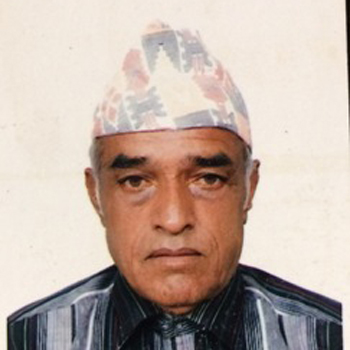Opinion
Sanitation for all
Eliminating open defecation will help avert communicable diseases
Balaram Chaulagain
The provision of clean drinking water and the disposal of sewage is called sanitation. As such, the removal of human waste and keeping places free from substances that may cause diseases must be the prime objective of any society. In the past, sanitation was centred on the sanitary disposal of human excreta. Even now, to many people, sanitation still means the construction of latrines. But the term sanitation covers the entire field of controlling the environment with a view to prevent diseases and promote public health. As sanitation is a way of life, it should also be analysed from an environmental health and hygiene point of view.
Conference on sanitation
Keeping this in mind, the Ministry of Urban Development organised the fifth South Asian Conference on Sanitation (Sacosan). It was held for the first time in Nepal. Around 100 experts from Nepal, 10 from India, 50 from Pakistan, 65 from Bangladesh, 10 from Bhutan, 30 from Srilanka, 30 from the Maldives and 20 from Afghanistan participated in the conclave.
The conference kicked off on October 21, 2013 in the Bhaktapur Durbar Square and concluded on October 24 with the Kathmandu Declaration amidst a programme in the Capital. The conference declared Bhaktapur as an Open Defecation Free (ODF) district. Bhaktapur became the tenth district to be declared an ODF zone in the country after all the houses of its 16 VDCs and two municipalities got toilets. Prior to this, Kaski, Chitwan, Tanahun, Myagdi, Pyuthan, Parbat, Achham, Kalikot and Makwanpur districts had already been declared ODF zones.
Since its inception in 2003, Sacosan has been a common platform for participating nations to discuss problems and explore solutions to achieve complete sanitation. Much ill-health in underdeveloped and developing countries is due to poor environmental sanitation: unsafe water, polluted soil, unhygienic disposal of human excreta, poor housing and the presence of insects and rodents. Since the majority of people residing across the length and breadth of the South Asian Association for Regional Cooperation (Saarc) countries live in rural areas with low levels of income and high levels of illiteracy, the problem is one of sanitation.
Environmental sanitation
Improvement of environmental sanitation is therefore crucial for the prevention of communicable diseases and the promotion of the health of individuals and communities. Adequate water supply and sanitation services must be launched simultaneously to achieve the laudable goal of sanitation for all. In this regard, the government alone cannot provide the required amount of sanitary supplies but can act as a catalyst. Key sanitary measures must be carried out by members of society.
The first step in any health programme is environmental sanitation. The fifth regional sanitation conclave pinned high hopes that Nepal would be able to meet its goal of making the entire country ODF by the year 2017. Let us hope, in the days to come, stakeholders will implement the declaration in its letter and spirit. As per the information received from concerned sources, the Saarc region has also targeted to end open defecation in its catchments area by 2020. The ODF campaign is a positive step as the country is moving towards achieving the ambitious plan of universal access to water and sanitation services by 2017.
Coordinated effort
The Sacosan meeting developed a pragmatic plan of action and strategies to make significant progress in water, sanitation and hygiene (Wash) in the Saarc region. Through the inter-ministerial conference, all Saarc member countries unanimously agreed to declare an open defecation free South Asia by 2023 and collaborate for sustainable environmental sanitation.
But unless we garner public private participation to eliminate the rampant irregularities in sanitation, the conclave and its declaration will only be confined to paper. Many people in Saarc nations lack knowledge on the basics of sanitation. It has been observed that children under five years of age are most vulnerable to diarrheal diseases and often lose their lives prematurely.
The good news about the Sacosan ODF declaration is that the adoption of hygienic practices can prominently prevent many communicable diseases. To achieve the national target of sanitation for all, behavioural changes of all stakeholders is a must. The drive against open defecation should not be taken lightly. Such activities will be able to avert many deadly diseases in the days to come.
Chaulagain is a retired public health officer ([email protected])




 16.88°C Kathmandu
16.88°C Kathmandu










